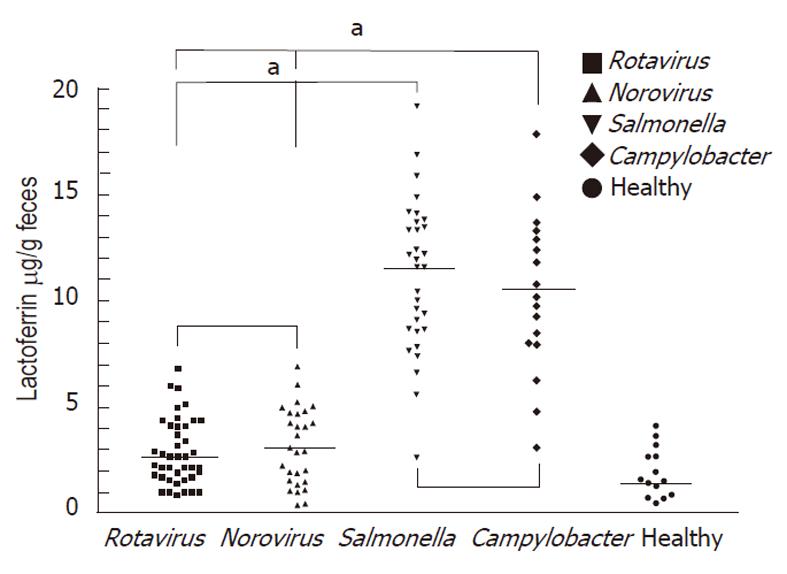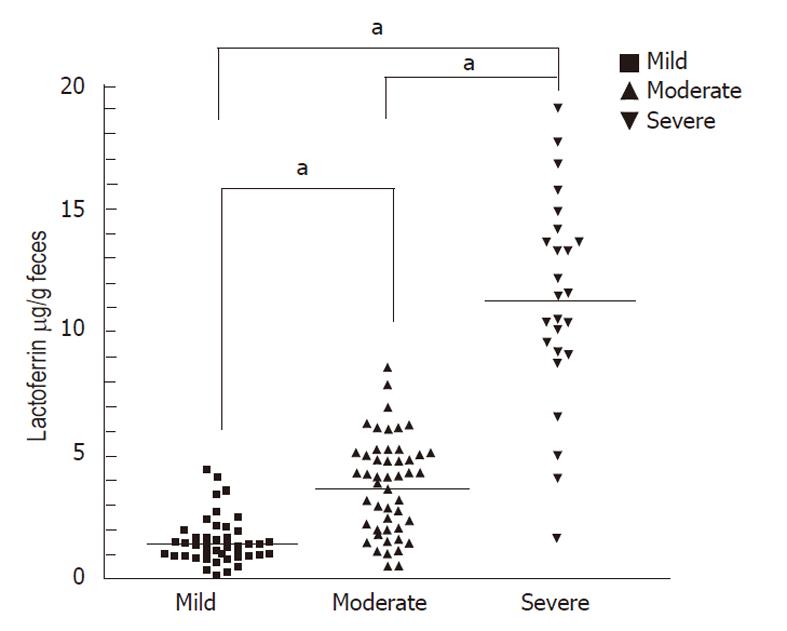©2011 Baishideng Publishing Group Co.
World J Gastroenterol. Oct 7, 2011; 17(37): 4218-4224
Published online Oct 7, 2011. doi: 10.3748/wjg.v17.i37.4218
Published online Oct 7, 2011. doi: 10.3748/wjg.v17.i37.4218
Figure 1 Grouped samples of fecal lactoferrin (μg/ g feces) in healthy children and children with gastroenteritis caused by different pathogens, including rotavirus, norovirus, Salmonella and Campylobacter infection.
The mean level of fecal lactoferrin was higher in patients with Salmonella or Campylobacter infections but lower in patients with rotavirus or norovirus infections. Horizontal line: Mean; aP < 0.05.
Figure 2 Fecal lactoferrin level (μg/ g feces) in children with mild , moderate or severe disease activity according to the Vesikari score (< 11 mild, ≥ 11 moderate, ≥ 16 severe).
Levels of fecal lactoferrin were elevated in moderate and severe disease activities. Horizontal line: Mean; aP < 0.05.
- Citation: Chen CC, Chang CJ, Lin TY, Lai MW, Chao HC, Kong MS. Usefulness of fecal lactoferrin in predicting and monitoring the clinical severity of infectious diarrhea. World J Gastroenterol 2011; 17(37): 4218-4224
- URL: https://www.wjgnet.com/1007-9327/full/v17/i37/4218.htm
- DOI: https://dx.doi.org/10.3748/wjg.v17.i37.4218














